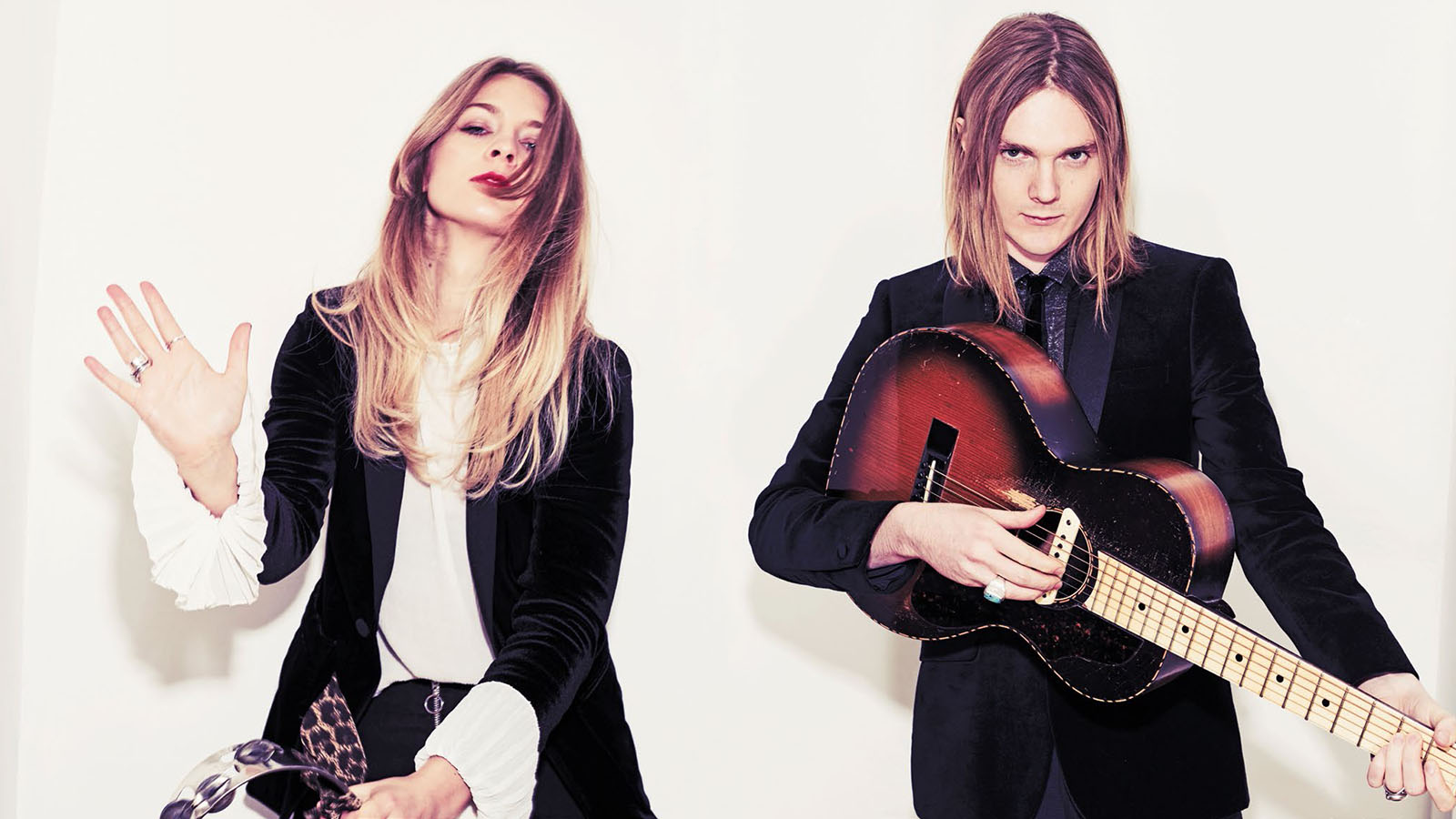Ida Mae's Chris Turpin on his motley crew of guitars and choosing to go the quieter route
The U.K. husband-and-wife team's debut album is a beguiling collection of understated harmonies and beautiful melodies

It takes a lot of guts to walk away from a rising rock ‘n’ roll band. Ask the Rolling Stones’ Tony Chapman or Spinal Tap’s Nigel Tufnel; quitting a popular act might mean a life spent as the answer to a trivia question rather than one spent on stage or in the studio (thankfully for music fans everywhere, Tufnel’s departure was temporary. The rest weren’t so lucky).
But for Chris Turpin and Stephanie Ward, quitting just as their hard-rocking quartet, Kill It Kid, was starting to make major waves in the British alt-rock scene may have been the best decision they ever made.
Under the name Ida Mae, the pair recently released their debut album, Chasing Lights. While Kill It Kid’s sound was marked by the raging electric guitars and bashing drums of peak-era Zep, the understated harmonies and stripped-down sound of Chasing Lights is reminiscent of Fleetwood Mac at their most heartbreakingly fragile (it’s perhaps no coincidence that, like many members of that band at one time or another, Turpin and Ward are a married couple).
“We were getting pushed and pulled by record companies to get heavier and heavier,” Turpin says. “Kill It Kid was named after a song by Blind Willie McTell, a 1920s 12-string guitar player who sang with his wife. The aesthetic of that band was for me to be doing that with Steph and, of course, that message got lost across time so Ida Mae was a complete reconnection to our vocals, pure songs, pure guitar playing and doing it live.”
Chasing Lights is the kind of album that invites listeners to hold their breath, lest they miss a subtle syllable in the vocals or, even worse, somehow disturb the painstakingly heartfelt performance - the hushed tones set a mood so intimate, it sounds like it’s being recorded in your living room. But rather than slavish recreation of early blues, it’s a sound that’s been updated for contemporary audiences with Turpin’s pedalboard and subtle drum machine sounds.
“We were very cautious and we were very careful that we juxtaposed certain sounds against others,” Turpin says. “We would put my guitar through amplifiers and octave pedals alongside drum machines just to sort of transform it into a new sound.”
While the album is a considerable step down in the raucousness department from Kill It Kid, that’s not to say the duo are lacking dynamics - with nothing more than their voices, some Dobro-style guitar and a thumping kick drum, single Reaching rocks with the primal, stomach-churning violence of a stripped-down Bo Diddley song. But at their core, all the songs are about three elements - Turpin and Ward’s voices and some very inventive guitar geekery.
Get The Pick Newsletter
All the latest guitar news, interviews, lessons, reviews, deals and more, direct to your inbox!
“I’m a huge guitar geek,” Turpin says. “I brought a lot of stuff and ended up using half of it. My main one was my Asher Resosonic resonator. That’s the one I wrote the record on and is a real precious guitar to me. I also used a 1928 National Duolian resonator, which I managed to get really cheap and has been stripped and refinished bright red and someone covered it in cowboy decals in the Forties.”
Turpin rounded out his motley crew of guitars with a 1920s parlor guitar (“It’s named after a Hawaiian island; I’ve never seen another one”) and a spruce-top Telecaster, all played through either a Tweed Fender Champ or Vox AC4.
“I love those really early Chess Records sounds, which are these 5-watt amps driven to hell,” Turpin says. “In the studio, we try to be in the room together, so a 150-watt Marshall stack wasn’t going to be appropriate for that session.”
It’s an intimate, stripped-down way to make a record that reminds us that for all his genius, Tufnel was wrong about always needing to turn it up to 11. And sometimes, going the quieter route can be the best decision - even in rock ‘n’ roll.
Adam is a freelance writer whose work has appeared, aside from Guitar World, in Rolling Stone, Playboy, Esquire and VICE. He spent many years in bands you've never heard of before deciding to leave behind the financial uncertainty of rock'n roll for the lucrative life of journalism. He still finds time to recreate his dreams of stardom in his pop-punk tribute band, Finding Emo.
“I heard the Money solo and thought, ‘This is amazing!’ So I sent David a telegram saying, ‘Remember me? I'm in a band now called Roxy Music’”: Phil Manzanera on his friendship with David Gilmour, and the key to the Pink Floyd man's unmistakable tone
“It’s really quite genius, but also hard to learn – it sounds insane, but sometimes the easiest songs still get me nervous”: Kiki Wong reveals the Smashing Pumpkins song she had the most trouble with











